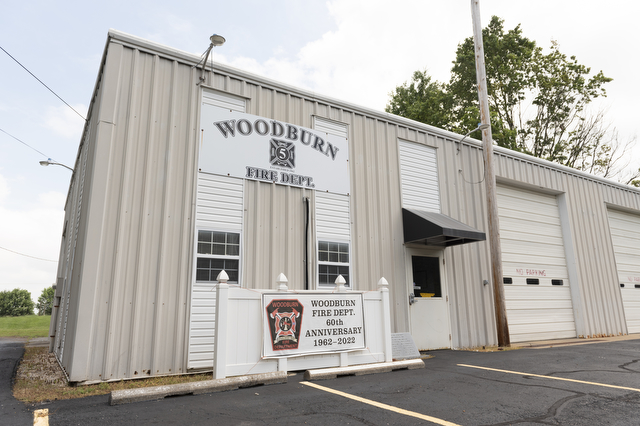Jonesville documentary to have Thursday screening
Published 6:20 am Tuesday, April 29, 2025
DAVID MAMARIL HOROWITZ
david.horowitz@bgdailynews.com
On Thursday, a uniquely executed documentary on Bowling Green’s former predominantly Black neighborhood Jonesville will have its big public unveiling at Western Kentucky University.
The one-hour documentary, “Jonesville: When Sunflowers Fall,” will precede a Q&A and reception at WKU’s Jody Richards Hall Auditorium; doors open at 5:30 p.m, and the screening goes 6 to 7 p.m. It’s directed by Josh Niedwick and produced by community members Alice Gatewood Waddell, Akisha Townsend Eaton and David Greer – all three have ties to the neighborhood, which was razed in the ’50s and early ’60s amid the national Urban Renewal Movement so WKU could expand.
It’s sponsored by WKU PBS, the Kentucky Museum and the Kentucky Folklife Program. It is hosted by the Jonesville Reconciliation Workgroup, which was established by WKU President Tim Caboni in 2022 primarily to assess how to best address issues that remain from Jonesville’s dismantling.
“Everywhere you go, there is history all around you … . Some of that history is really well preserved, and some of that history is lost, forgotten and in some unfortunate cases, even just buried,” Niedwick said. ”Working on projects like this, and working with these communities, ensures that these histories that we all have connections to in some form or another remain present for us to engage with, learn from.
“Because losing Jonesville had a massive impact on a lot of people who I call neighbors who’ve lived in Bowling Green and Warren County … making and watching (these kinds of documentaries) helps us understand what our neighbors have gone through, and helps us understand the ground we walk on that we may have assumed has always been one thing, was actually something else a long time ago. The place where I parked my car, someone once called home.”
There’s an urgency in documenting and sharing these narratives, as the number of remaining Jonesville residents decreases with time. Well-known community member Angela Townsend, who once lived in the neighborhood, passed away March 26.
Townsend Eaton, Angela Townsend’s daughter, said the documentary tells the story of a once-thriving African-American community that, for a long time, was forgotten. Her family history in the neighborhood goes back at least to the 1880s, she said.
“I hope that the audience comes away with an interest in learning more about the history of Jonesville – how it relates to the city of Bowling Green as it is today and how it fits into the larger conversation around what happened to similar communities within the state of Kentucky and throughout the country” through the urban renewal movement, she said.
A unique production
The team behind the documentary sought out residents or descendants of Jonesville as paid producers, had them undergo a storytelling training program, and included them in the pre-production, production and post-production of the documentary, Niedwick said.
This differs from how journalism and documentaries are typically executed, where journalists or documentarians interview individuals and then decide – without the interviewees’ production oversight – how to package that story.
“What we wanted to do is to restructure that power dynamic and invite individuals who lived that experience to learn how to make a documentary,” Niedwick said. “I’m a white man trying to tell the story of an African-American community. My background, my cultural experience, is vastly different (from) the people who lived there. I can sit and listen to them, but there’s still going to be things that I will not understand because I didn’t live it, I didn’t grow up hearing about it … .
“At the same time, these producers are being given skills … . Hopefully they can then go out and continue to tell their community stories.”
Townsend Eaton expressed appreciation for the approach. As producers, she and the others had input in every aspect of production, beginning to end – from writing the script, to researching, to interviews, and editing, she said.
“There are no better authors of one’s story than those who either lived it or (are) directly connected to the community in some way, so to be able to add that level of depth to the production was meaningful and critical,” she said.
— Ahead of the screening, from 3:30 to 5 p.m., WKU Public Media will hold tours at the WKU Academic Complex, 1601 Normal St., as an opportunity for members of the public to go behind the scenes of the station, said Jordan Basham, WKU Public Media’s interim executive director. Tours are expected to be around 20 minutes in small groups where people can ask questions.







